2025 International Monetary Forum Holds in Beijing
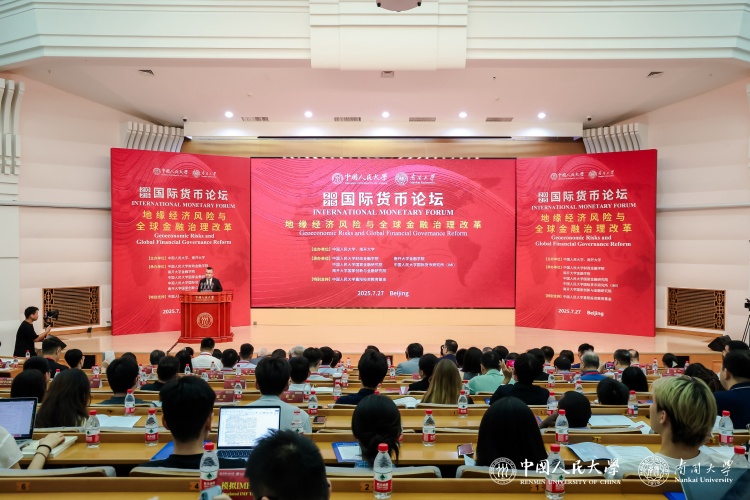
On July 27, the 2025 International Monetary Forum was held in Renmin University of China (RUC). This event was co-hosted by RUC and Nankai University (NKU), and jointly organized by School of Finance of RUC, School of Finance of NKU, National Academy of Financial Research of RUC, International Monetary Institute (IMI) of RUC, and National Institute for Innovation and Finance of NKU. Themed on “Geoeconomic Risks and Global Financial Governance Reform”, the forum gathered renowned experts and scholars from research institutes, policy-making agencies and financial institutions at home and abroad to discuss geoeconomic risks, global financial governance, cryptocurrencies, and digital finance. The event attracted over 500 in-person attendees and garnered more than 500,000 online views.
Lin Shangli, President of RUC, and Chen Yulu, President of NKU, attended the opening ceremony and the launch of the 2025 Report on Renminbi(RMB) Internationalization. Wang Fang, Deputy Director of IMI and Vice Dean of School of Finance of RUC, presented and interpreted the report’s findings.
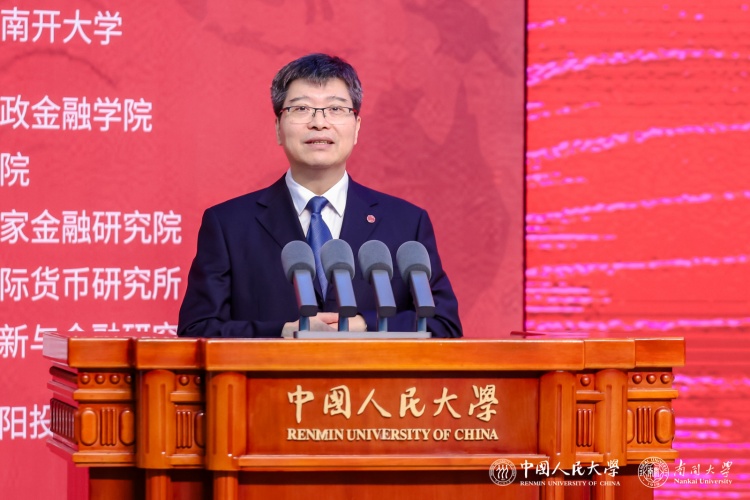
In his speech, Lin Shangli stressed the urgent need for fresh solutions amid escalating geopolitical conflicts, resurgent protectionism, and mounting financial turbulence. He cited President Xi Jinping’s remarks at the G20 Summit 2024, where Xi called for improving global financial governance, building a more stable world economy, and fostering a fair and equitable system of global governance. Lin underscored that China, through high-level financial openness and prudent progress in RMB internationalization, has become a pivotal force in safeguarding a diversified monetary system and driving reform of global financial governance. He expressed hopes that RUC and NKU, building on their long-standing partnership, would work together to pioneer new pathways and open new chapters in developing finance with Chinese characteristics and building China into a strong financial powerhouse, while contributing solutions to global financial governance reform and RMB internationalization.
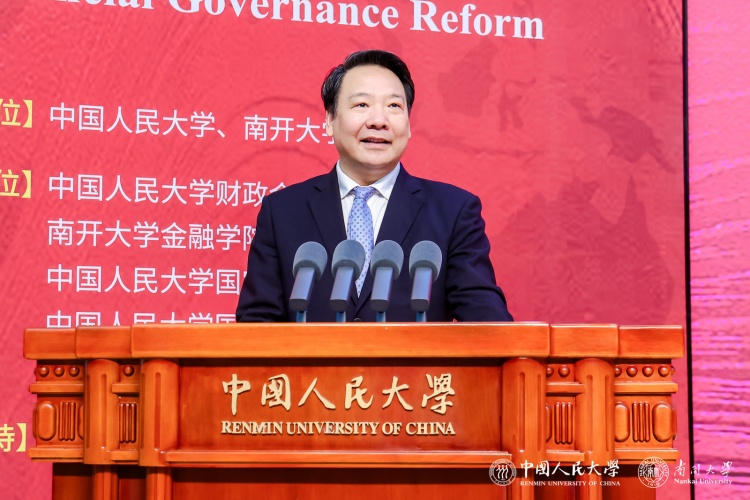
In his speech, Chen Yulu noted that artificial intelligence and the digital economy are reshaping the course of global economic development, with digital currencies emerging as a central variable in the restructuring of the international monetary system. He emphasized that the unilateral push for unipolar stablecoins by certain countries could exacerbate systemic risks, citing five major concerns: running counter to the multipolar trend, amplifying traditional financial risks, triggering spillover effects from US debt and dollar volatility, creating new channels for currency mismatches, and leaving regulatory voids. Chen called for adherence to three guiding principles—value authenticity, system robustness, and inclusiveness—to foster the coordinated development of central bank digital currencies and compliant stablecoins. He further proposed jointly building a multilateral liquidity support network for digital currencies and working with the Global South to create an equal and mutually beneficial Digital Silk Road, thereby shaping a more inclusive and accessible global digital currency order.
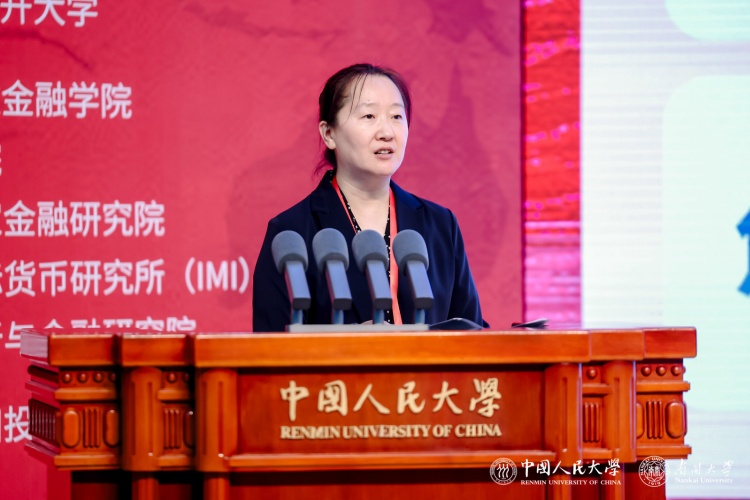
Wang Fang presented the achievements of the 2025 RMB Internationalization research project, Deepening Geoeconomic Risks. She explained that the report undertakes a systematic and academic study of geoeconomic risks through concept clarification, risk tracing, and effect analysis. It offers an analytical framework that situates reform of the international monetary and financial system as a means of effectively responding to geoeconomic shocks, while also revealing the intrinsic features and transmission mechanisms of such risks. In this way, the report links strategies for managing geoeconomic risks with the broader process of RMB internationalization. Following a “problem–impact–solution” research logic, the report argues that current geoeconomic risks arise from the concentrated eruption of contradictions embedded in the global economic and financial order and will continue to intensify. Their negative spillover effects have already spread to China’s real economy, financial markets, international trade and investment systems, global supply chains, and the international financial market. In response, the report proposes that advancing RMB internationalization—thereby driving reform of the international monetary system—offers an important pathway to mitigating geoeconomic risks. Data further show that when the geoeconomic risk index rises, the RMB internationalization index also rises in parallel, accompanied by diversification in the global payments system and in official reserve currencies. The report concludes that to counter shocks initiated by core economies, China and a broad range of peripheral countries should seek fundamental solutions from the perspectives of China–US strategic competition, international monetary system reform, and global financial governance reform.
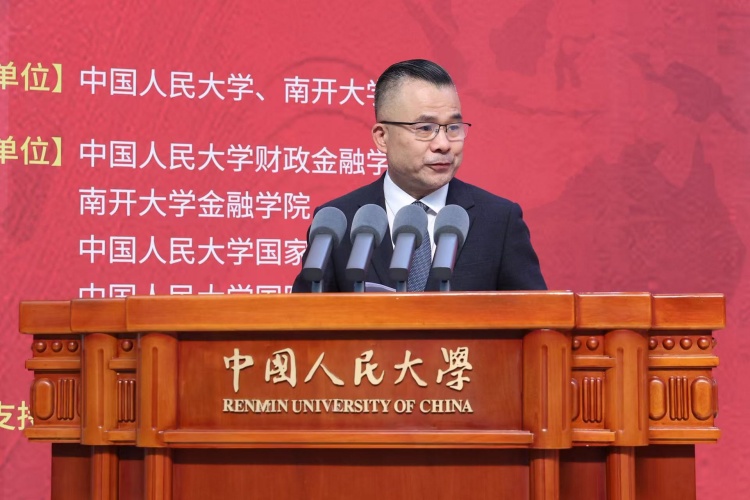
The opening ceremony was presided over by Zheng Xinye, Vice President of RUC.
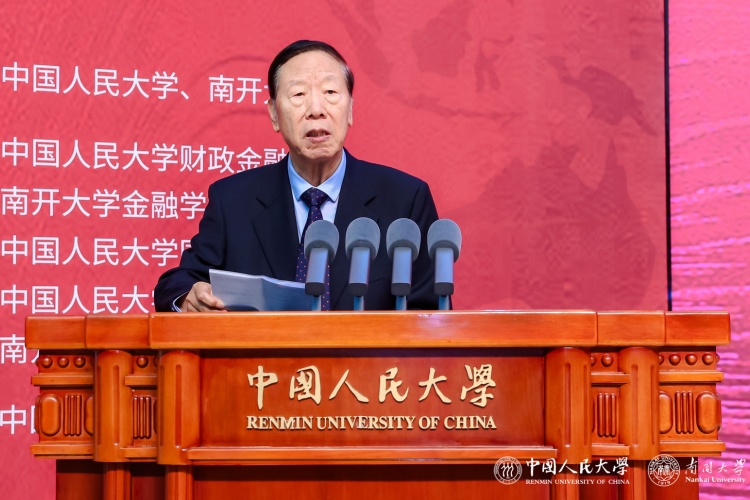
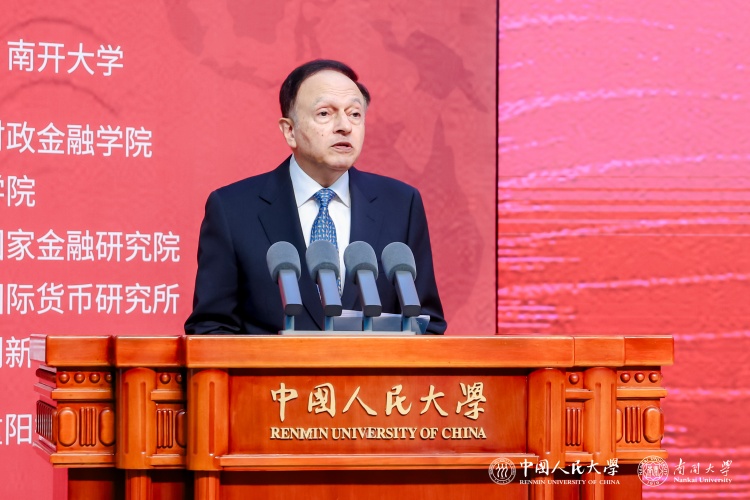
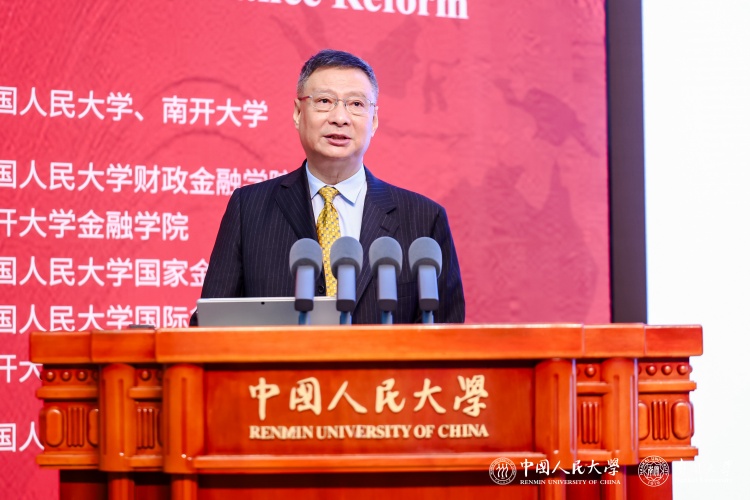
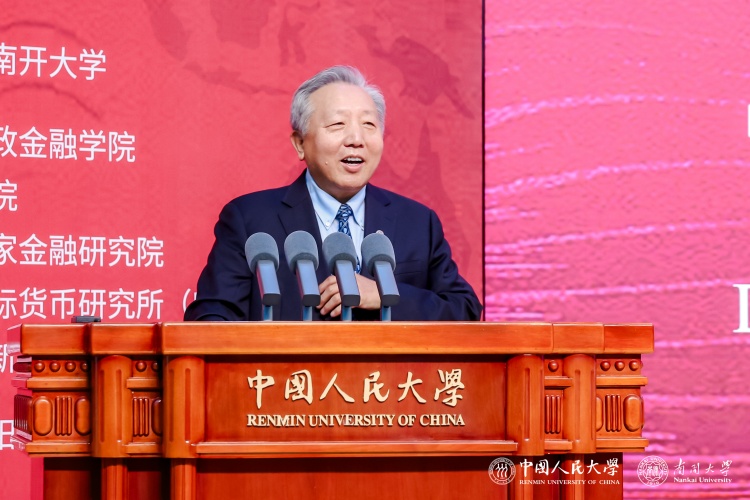
Keynote speakers included Dai Xianglong (Former Governor of the People’s Bank of China), Yaseen Anwar (Former Governor of the State Bank of Pakistan), Li Lihui (Former President of Bank of China), and Wu Xiaoqiu (Former RUC Vice President, Dean of the RUC National Academy of Financial Research).
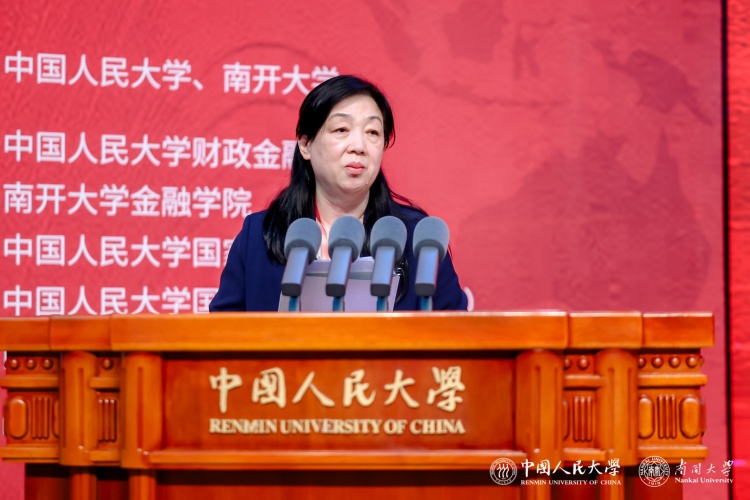
The keynote session was chaired by Zhuang Yumin, Dean of School of Finance, RUC.
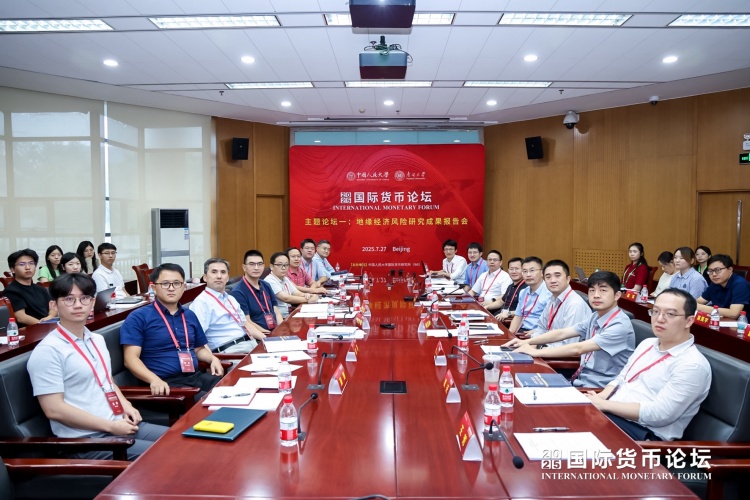
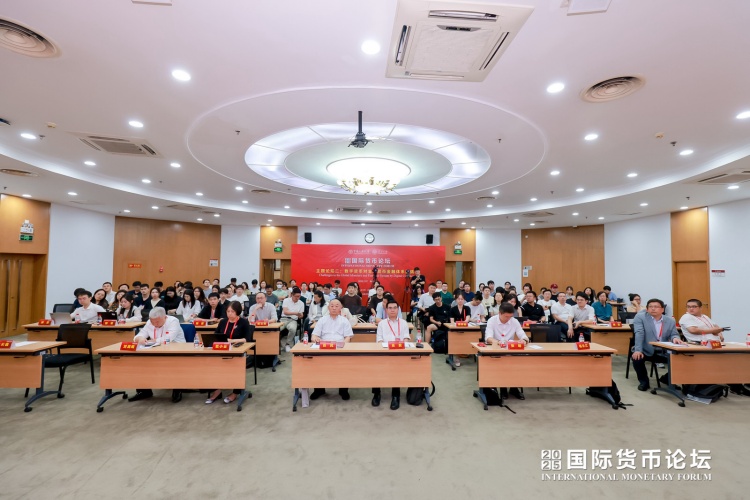
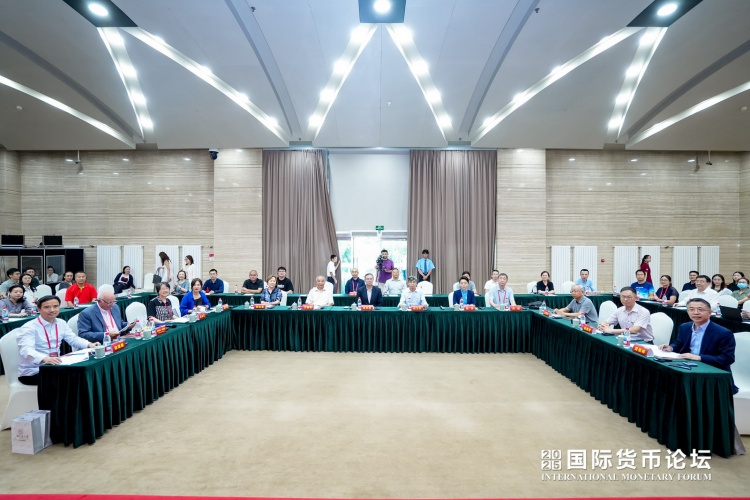
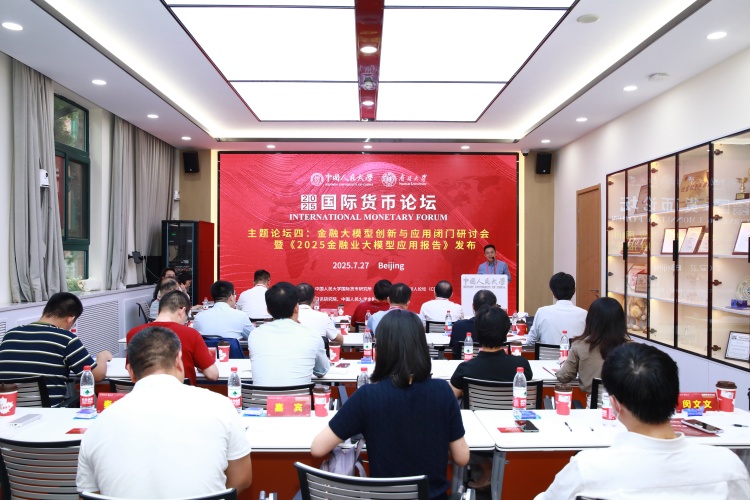
In the afternoon, four parallel sessions were held: Research Report on Geoeconomic Risks; Challenges Posed by Digital Currencies to the Global Monetary and Financial System; Global Financial Governance: History, Present and Future; and Closed-Door Seminar on Innovation and Application of Large Models in Finance and the Release of the 2025 Report on Large Model Applications in the Financial Sector. Experts and scholars engaged in in-depth discussions on these sessions, jointly focusing on geoeconomic risks and the reform of global financial governance.
(Edited and translated by Nankai News Team.)









